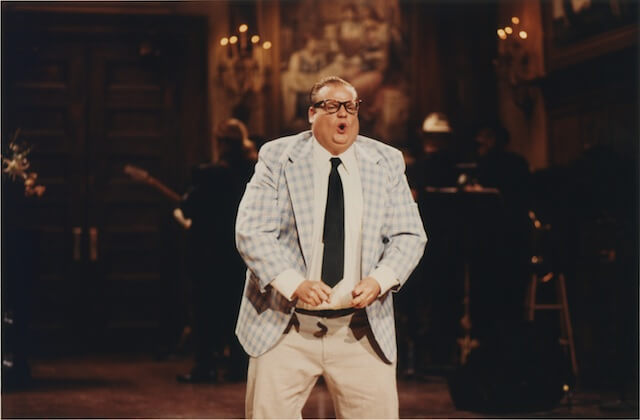‘I Am Chris Farley’ Last month the doc “Live from New York!” tried to cram an entire 40 years of “Saturday Night Live” — riddled with tumultuous periods, varying quality and an untold number of egos — into a running time only slightly longer than one of the show’s episode, without commercials. It’s a subject worthy of deep dives, such as the one taken in “I Am Chris Farley.” The doc examines one of the show’s most tragic figures, whose John Belushian rise met with a John Belushian end. Both had drug problems; both had extensive press coverage of their drug problems. (Farley at least didn’t receive an entire book painting him as a hellion, a la Bob Woodward’s “Wired.”) And both have colleagues and loved ones who attest to his warmth, though Belushi also had a dark side beyond his addictions that the sweeter Farley did not. RELATED: “Live from New York!” goes soft on “Saturday Night Live” And that, basically, is all “I Am Chris Farley” has to say. It has a noble mission, reclaiming him as a softie who fell to addiction, released at a time when the public’s understanding of the illness seems to be finally taking a turn. Beyond that, it’s a mere clips and exposition show, with the occasional cutaway to lookalike brother Kevin — who starred in David Zucker’s woebegone conservative comedy “An American Carol” — doing his limp standup. Talking heads repeatedly speak to his unfailing exuberance and disarming capacity for childlike wonder, and also try to top each other with hyperbole. Once it gets to his film career, “Tommy Boy” costar Bo Derek misuses the word “literally,” and not in the way literally everyone misuses it. Speaking of which, Farley was only a major figure for about five years, which in part explains why directors Brent Hodge and Derik Murray glom onto his less-than-stellar film career. They overemphasize “Tommy Boy”’s stature, pitching it as an all-time classic and not a so-so vehicle for his gifts, while “Black Sheep” gets written off as a rush job and “Beverly Hills Ninja” and “Almost Heroes,” his swan song, are perhaps wisely ignored. It tastefully refrains from going into his drug habit in depth, mentioning his few dozen stints in rehab but holding back on footage of him looking sweaty and barely together. It doesn’t even try to explain what drew him to drugs in the first place, apart from a tacit understanding that performing at that level and to such extremes may have necessitated some self-prescribing. It doesn’t go too deep, as doing that may mean implying that audiences are complicit in the self-destruction some performers go through to entertain. At the same time, its love for its subject — as a performer but even moreso as a person — is palpable enough that the good vibes are hard to shake.
Directors: Brent Hodge, Derik Murray
Genre: Documentary
Rating: NR
3 (out of 5) Globes
‘I Am Chris Farley’ takes a shallow but loving look at a tragic star

Virgil Films
Follow Matt Prigge on Twitter @mattprigge


















